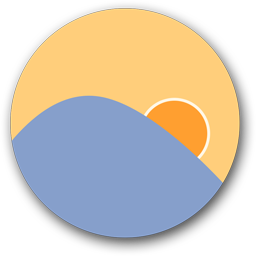Ever notice how people texting at night have that eerie blue glow? Or wake up ready to write down the Next Great Idea, and get blinded by your computer screen?
During the day, computer screens look good---they're designed to look like the sun. But, at 9PM, 10PM, or 3AM, you probably shouldn't be looking at the sun. It's even possible that you're staying up too late because of your computer. You could use f.lux because it makes you sleep better, or you could just use it just because it makes your computer look better. f.lux makes your computer screen look like the room you're in, all the time. When the sun sets, it makes your computer look like your indoor lights. In the morning, it makes things look like sunlight again.
Is f.lux better than Windows Night Light?
F.lux offers more features than Windows Night Light. With f.lux you only need to set your location and f.lux will automatically do the rest. It also allows you to set different temperatures at specific times or manually adjust your current temperature based on your preferences.
On the other hand, Windows Night Light only allows you to schedule Night Light or set times, but not manually control the temperature of your screen. F.lux also works with Linux and macOS.
Can I use f.lux while gaming?
Yes. Since version 4, f.lux has less impact on games and overall system performance. But if you prefer, you can manually disable f.lux when running full screen applications from the system tray icon.
Can f.lux adjust the brightness of my screen?
Yes. You can increase the brightness with Alt + PgUp and decrease the brightness with Alt + PgDn.
Are there presets of temperature on f.lux?
F.lux has several presets for eliminating blue light if you want to manually set it. The presets are:
- Ember: 1200K
- Candle: 1900K
- Warm Incandescent: 2300K
- Incandescent: 2700K
- Halogen: 3400K
- Fluorescent: 4200K
- Sunlight: 5500K
What's New
- Beta version updated to 4.123
- Bedtime mode: this extra-warm mode gets you ready for sleep and also helps you customize f.lux's timing to work better with your actual schedule
- Circadian response is shown when you change settings, to show how light affects your circadian system
- Backwards alarm clock reminds you how long it is until you wake up, hopefully to get you to bed a little earlier
- Presets to help pick your settings, or reset things when you get stuck
- Color filters for eyestrain and other uses
- A wider range of color settings (including very cool colors)
- You can tell f.lux to disable when particular apps are running, or when watching fullscreen movies and games
- There are new hotkeys to adjust color a little bit at a time (Alt+Shift+PgUp and Alt+Shift+PgDn)
What's fixed:
- Reduced impact on game framerates
- Resolution independent interface, for high DPI
- DisplayLink (when your monitor is connected via USB) works in a lot more cases now
Smart Lighting:
- Hue integration now supports more light types
- LAN API with support for telling other devices when f.lux changes



